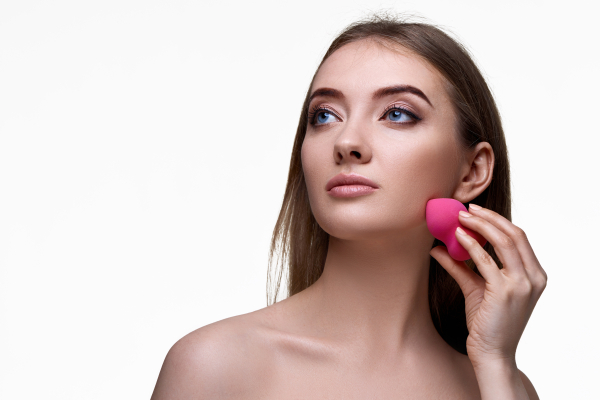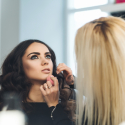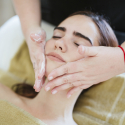Caution: Cosmetics to Avoid Using in Summer

Before stepping out into the scorching sun, ensure you haven't applied the cosmetics discussed in this article. Otherwise, the consequences for your health and skin beauty could be dire.
Skin Irritations After Sunbathing – a Classic Story
Redness and irritation after sun exposure are a classic tale, but blaming poor-quality sunscreen alone isn't always fair. Often, the culprit is our lack of awareness. Some cosmetics can seriously harm your skin if applied before heading to the beach or other sun-exposed areas. Amidst vacations and the summer season, we provide a detailed beauty guide on which cosmetics are best postponed until evening or, in the worst case, rainy days.
Citrus Essential Oils
They sound wonderful and offer a sense of freshness and vitality. However, as much as you may want to extend this feeling throughout the day, be cautious about using citrus oils during the day, especially in summer. Citrus fruits contain components that can protect the skin from pathogens. Yet, if you apply citrus oil to your skin and then go for a walk on a hot sunny day, these beneficial components can cause a phototoxic reaction. As a result, you may experience redness, pigmentation, or even burns. Dermatologists and cosmetologists recommend using citrus oil at least 24 hours before sun exposure, preferably overnight as part of moisturizing products and special night masks.
Citrus oils are natural photosensitizers, so be particularly careful with products containing citrus extract in summer, even during snack breaks with oranges or grapefruits.
Antibacterial Agents and Cleansing Acids
This point primarily concerns skincare before leaving home. Generally, summer isn't the best time for deep cleansing procedures. The best thing you can do for your skin this season is to give it at least a month's break from peels and masks, time to restore its natural pH balance, soak up vitamin D, and regain the healthy glow we long for all winter. But there's another reason why antibacterial and cleansing agents are better excluded from daytime summer skincare routines.
Antibacterial particles, salicylic acid, and glycolic acid, often found in cleansing products, are effective components for fighting acne but can also excessively dry out the skin. This becomes a real disaster when considering its natural protection against ultraviolet rays: a breach in the skin's protective barrier makes it far more susceptible to UV radiation.
Spray Sunscreens and SPF Below 30
Discussions about the effectiveness of spray sunscreens have been ongoing for a long time, yet most dermatocosmetologists claim they would never personally prefer spray sunscreen over cream texture. In their view, sprays merely disperse sunscreen components without creating a complete protective barrier.
Some specialists point out that spray sunscreens are suitable for the body, but for facial skin, it's better to choose products with a creamy texture or fluid with an SPF of at least "30". SPF 30+ sunscreens can provide you with 95% protection, but that's not where you should stop: in any case, the higher the SPF, the better. And remember: below 30 is just like not wearing sunscreen at all. Therefore, our choice is SPF 50+ (also read: "Face sunscreen: 20 best options for UV protection").
Special attention should be paid to the composition of sunscreen products. Research shows that zinc oxide is the most reliable and safe sunscreen component, and it's worth ensuring its presence before purchasing a cosmetic product. Zinc oxide also has anti-inflammatory effects and helps soothe irritated skin while protecting it.
Note that some components in sunscreen products can have the opposite effect and make the skin more susceptible to UV rays. Among these components are vitamin B10 and its derivatives, as well as benzophenone, isoamyl, and other ingredients.
Retinol and Retinoid Products
Vitamin A and its derivatives in cosmetic products are not the best choice for daytime care. They are indispensable in combating acne and wrinkles but are absolutely unprotected and even harmful when interacting with sunlight, so dermatologists recommend using them exclusively at night (also read: "The truth about the benefits of retinol for the skin").
Many such warnings are due to the fact that retinol severely dries out the skin. Like cleansing products, it disrupts the skin's natural protective barrier and reduces the resistance of cells to ultraviolet light. This can cause not only temporary problems but also serious disorders, as it has long been known that UV rays contribute to premature skin aging.
Perfume
Dermatologists are firm about perfume and advise completely avoiding it during sun exposure. Often, your favorite fragrances contain natural oils and plant extracts that, when exposed to sunlight, can trigger excessive pigmentation that's challenging to remove. As much as you'd like to stroll along the seaside with your favorite notes, in this matter, it's better to heed specialists' advice. Save your summer fragrance pyramid with jasmine and musk for evening outings.









